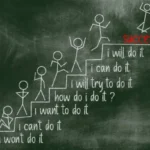Introduction: Why Being a Good Team Player Matters
Have you ever been part of a team that just clicks? Where everyone works smoothly together, and the results are impressive? That’s the magic of great teamwork—and being a strong team player is the secret sauce behind it. Whether you’re at work, school, or even playing sports, knowing how to contribute effectively to a team can boost your success and make the whole experience more enjoyable. But what exactly makes someone a great team player? Let’s dive in!
Understanding Teamwork: The Basics
What is Teamwork?
At its core, teamwork is the process of working collaboratively with others to achieve a common goal. It’s more than just sharing a task; it’s about combining skills, perspectives, and efforts to create something better than any individual could alone.
Why Teams Succeed or Fail
Teams thrive when members trust each other, communicate openly, and pull their weight. On the flip side, teams falter when egos clash, communication breaks down, or people don’t follow through. Understanding these dynamics is your first step toward being a better team player.
Communication Skills: The Heart of Teamwork
Active Listening
Do you really listen when your teammate talks, or are you just waiting to jump in? Active listening means fully concentrating on what is being said, understanding it, and responding thoughtfully. It shows respect and ensures you don’t miss important details.
Clear and Concise Expression
On the flip side, you need to express your ideas clearly. Avoid jargon or beating around the bush. The easier it is for others to understand you, the smoother the team will operate.
Emotional Intelligence: The Invisible Glue
Recognizing Emotions in Yourself and Others
Teams are made of people, and people have feelings. Emotional intelligence (EQ) means being aware of your emotions and those of your teammates. This awareness helps you respond with empathy, not frustration.
Managing Emotions for Better Collaboration
Ever snapped at a teammate in the heat of the moment? That’s a breakdown of emotional management. By staying calm and constructive, you keep the team environment positive—even during stressful times.
Adaptability: Embracing Change in a Team Environment
Being Open to New Ideas
No matter how great your plan is, being flexible and open to others’ ideas can lead to breakthroughs you never expected. Stubbornness kills creativity and progress.
Handling Unexpected Challenges
Teams often face surprises—tight deadlines, shifting goals, or technical problems. A great team player adapts quickly, finds solutions, and keeps the team moving forward.
Reliability and Accountability: Building Trust
Following Through on Commitments
If you say you’ll do something, do it. Being reliable builds trust, and trust is the foundation of any successful team.
Owning Your Mistakes
Nobody’s perfect. When you mess up, own it and figure out how to fix it. This honesty strengthens respect and sets a healthy example.
Conflict Resolution Skills: Turning Problems Into Opportunities
Approaching Conflict Constructively
Disagreements happen, but how you handle them can make or break the team. Instead of blaming, aim to understand the other side and seek common ground.
Finding Win-Win Solutions
The goal isn’t to “win” but to find solutions that benefit everyone. This collaborative mindset keeps the team united and motivated.
Collaboration and Cooperation: Working Toward a Common Goal
Sharing Knowledge and Resources
No hoarding allowed here! Good team players freely share what they know and offer resources to help the team succeed.
Supporting Teammates Actively
Whether it’s lending a hand or cheering someone on, active support creates a positive and productive team vibe.
Positive Attitude: Energizing the Team
Staying Optimistic Under Pressure
Pressure is inevitable, but your attitude can be contagious. A positive outlook inspires the team to keep pushing through challenges.
Encouraging Others
Everyone likes a cheerleader. Compliment effort, celebrate wins, and lift spirits to maintain team morale.
Problem-Solving and Critical Thinking: Contributing Smart Ideas
Analyzing Issues Logically
When problems arise, don’t panic. Think critically and break down the problem to understand the root cause.
Offering Practical Solutions
Ideas are great, but practical, actionable solutions move the needle. Bring proposals to the table that others can implement easily.
Time Management: Respecting Everyone’s Time
Prioritizing Tasks Within a Team
Teams juggle many tasks, so knowing what’s urgent and what can wait helps avoid bottlenecks.
Meeting Deadlines Efficiently
Late work delays the whole team. Respect deadlines as if the team’s success depends on it—because it does!
Leadership Within the Team: Taking Initiative Without Dominating
Leading by Example
You don’t need a title to lead. Show commitment, enthusiasm, and a strong work ethic to inspire others.
Empowering Others
Great leaders lift others up. Encourage teammates to share ideas and take on responsibilities.
Cultural Sensitivity: Embracing Diversity
Understanding Different Backgrounds
Teams are often diverse, and that’s a strength. Respecting cultural differences prevents misunderstandings and fosters inclusion.
Promoting Inclusivity
Make space for every voice. Inclusive teams innovate better and feel stronger.
Feedback Skills: Giving and Receiving Constructive Criticism
Communicating Feedback Respectfully
No one likes to be attacked. Frame feedback as helpful advice, not personal criticism.
Using Feedback for Personal Growth
Take feedback as a gift. Use it to improve your skills and contributions.
Continuous Learning: Growing as a Team Player
Seeking Opportunities to Improve
Stay curious. Attend workshops, read books, or learn from mentors to sharpen your teamwork skills.
Encouraging Team Development
Share what you learn. Push for team training and growth to keep evolving together.
Conclusion
Becoming a better team player isn’t about being perfect—it’s about being aware, flexible, and committed to the group’s success. By mastering these skills—communication, emotional intelligence, adaptability, and more—you transform from just another member to an invaluable part of any team. So next time you step into a group, remember: great teamwork starts with you.
FAQs
Q1: Can introverts be great team players?
Absolutely! Introverts often excel at listening and thoughtful problem-solving, key team skills.
Q2: How can I improve my communication skills quickly?
Practice active listening, ask clarifying questions, and summarize what you heard before responding.
Q3: What’s the best way to handle conflicts in a team?
Stay calm, listen to all sides, and focus on solutions rather than blame.
Q4: How important is emotional intelligence in teamwork?
It’s crucial. EQ helps you navigate feelings, build trust, and create a positive environment.
Q5: Can leadership skills help even if I’m not the team leader?
Yes! Leading by example and empowering others benefits the whole team, regardless of your title.





